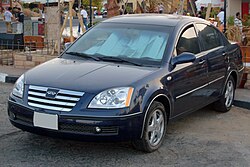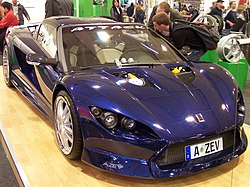Armenia

Former
- ErAZ (1966–1996)
This is an incomplete list of every brand (also known as make or marque) of automobile/car/motor vehicle ever produced, by country of origin, which has an article on Wikipedia. Names should not be added unless they already have an article. Some are from manufacturing companies that also use their company name as a brand name; others are from subsidiary companies or divisions, or are products of badge engineering. This is not a list of every brand that is available for sale in each country, but a list of companies that originated or have a significant independent presence in each country. This typically means manufacturing in that country and often exporting from that country, not just selling cars there.






















(Made by Citroën in Ivory Coast)[ citation needed ]


























